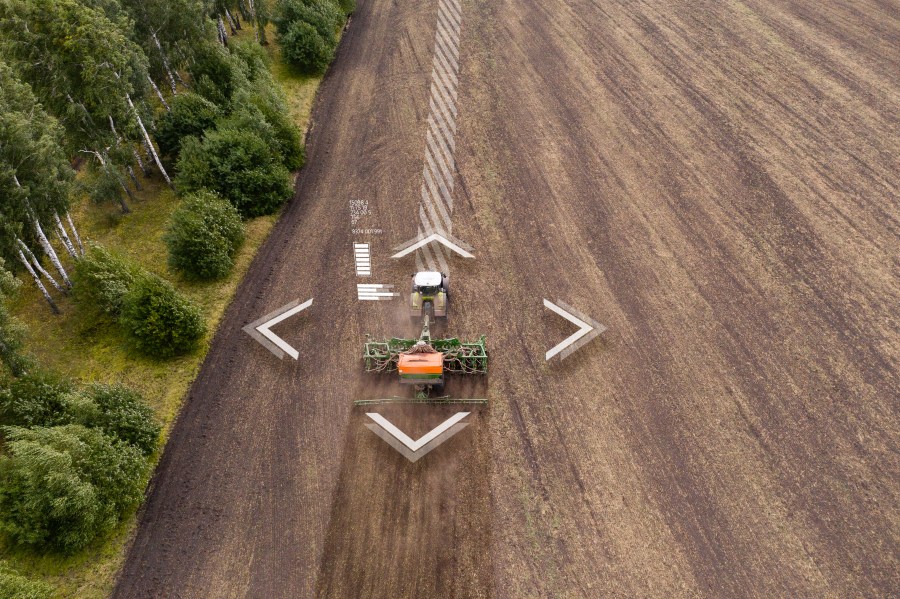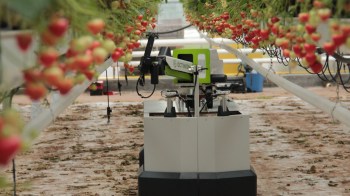High-tech farming helps automate the job — except when the equipment gets hacked

Tractors, combines and other farm equipment have become computers on wheels. They’re bluetooth-enabled as well as connected to the internet, which, as Dina Temple-Raston of the “Click Here” podcast explains, makes them incredibly vulnerable to hackers.

Jon Abbott lives and works on a farm in Milledgeville, Georgia. Population: 17,000. It’s about two hours southeast of Atlanta, and I visited him there to talk about a farm staple: the tractor.
“Growing up, I was used to riding on the older tractors that were just a straight shift diesel engine tractor that really the only electrical wiring on it was from the battery to the starter and headlights,” said Abbott.
But that’s not how tractors work these days. “Now the tractors can basically control themselves,” he said, “and you can just be up there in case something malfunctions.”
Or, in case your tractor gets hacked by someone like this guy, who goes by the name Sick Codes. “I’m Sick Codes. I’m a white hat hacker from Australia. I live in Asia and I hack for a living,” he said.
White hat hackers hunt for vulnerabilities inside networks, and then report them to companies or government agencies so they can be fixed before bad guys find them.
That’s what Sick Codes did with a John Deere tractor. He paid $7,000 dollars for one of the tractor’s touch screens, and then broke into it and found a way to control it.
“It is an important part of infrastructure, but it’s also important to test it,” said Sick Codes.
And he showed off his handiwork at a big hackers conference in Vegas. But in that case, he cracked into only one tractor. The doomsday scenario involves someone hacking into a bunch of them, all at once during harvest time.
Jen Easterly is the director of the Cybersecurity and Infrastructure Security Agency (CISA). And part of CISA’s job is to protect critical infrastructure, anything from power plants to “K-12 schools, small hospitals, water facilities,” she said. And, it turns out, tractors.
I asked her if a tractor is considered critical infrastructure, and she said yes, “John Deere, part of critical manufacturing. I mean, you’d be surprised. There’s not much that’s not critical infrastructure, frankly.”
Easterly said that if all tractors went down at once, “It’d be a disaster.”
Even the farmer we met earlier, Jon Abbott, said he now sees everything as vulnerable — the combine, the grain bins, the sprinklers that keep crops growing.
“I mean, honestly, if you hacked our water sprinklers and turned our sprinklers on,” Abbott said, “that could ruin everything that we’ve got, or you [would] make it die by keeping ’em off.”
All this new high-tech connected farm equipment, designed to make things easier, is giving him a whole bunch of new things to worry about, said Abbott.
The future of this podcast starts with you.
Every day, the “Marketplace Tech” team demystifies the digital economy with stories that explore more than just Big Tech. We’re committed to covering topics that matter to you and the world around us, diving deep into how technology intersects with climate change, inequity, and disinformation.
As part of a nonprofit newsroom, we’re counting on listeners like you to keep this public service paywall-free and available to all.
Support “Marketplace Tech” in any amount today and become a partner in our mission.

















